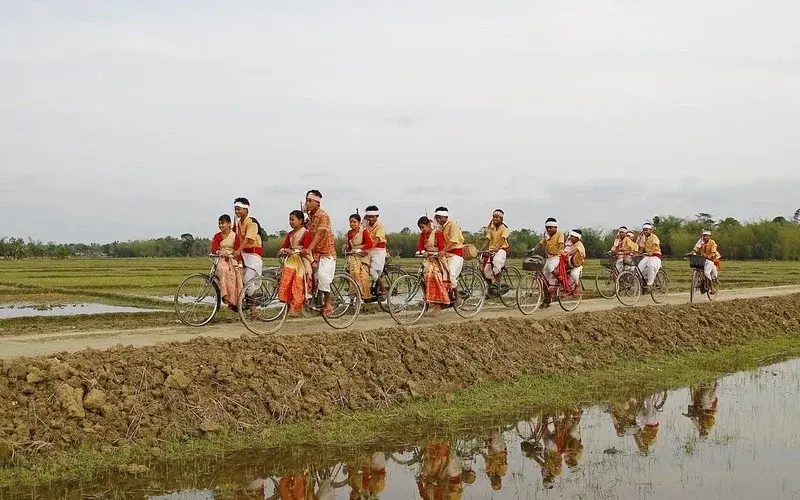


The history of Assam spans millennia, marked by diverse cultures and historical events. Ancient dynasties like the Varmans, Palas, and the six-century-long rule of the Ahom dynasty significantly shaped its cultural heritage.
During the colonial era, Assam was brought under British rule in the early 19th century after the First Anglo-Burmese War in 1826. Post-independence, administrative reorganizations led to the establishment of the modern state of Assam in 1972. The late 20th century saw the Assam Agitation (1979-1985) aimed at addressing issues like illegal immigration, culminating in the Assam Accord of 1985. Today, Assam is renowned for its tea industry, wildlife sanctuaries ...
The history of Assam spans millennia, marked by diverse cultures and historical events. Ancient dynasties like the Varmans, Palas, and the six-century-long rule of the Ahom dynasty significantly shaped its cultural heritage.
During the colonial era, Assam was brought under British rule in the early 19th century after the First Anglo-Burmese War in 1826. Post-independence, administrative reorganizations led to the establishment of the modern state of Assam in 1972. The late 20th century saw the Assam Agitation (1979-1985) aimed at addressing issues like illegal immigration, culminating in the Assam Accord of 1985. Today, Assam is renowned for its tea industry, wildlife sanctuaries like Kaziranga, and vibrant festivals like Bihu, showcasing its cultural resilience and rich heritage.
Geographical Diversity: Located in northeastern India, Assam features a diverse landscape with the Brahmaputra River, plains, hills, and forests.
Tea Capital: Assam is a major global tea producer, renowned for its robust Assam tea.
Wildlife Riches: Home to Kaziranga National Park and Manas National Park, known for Indian one-horned rhinoceroses and diverse wildlife.
Cultural Diversity: Assam is culturally diverse with the Assamese language as the official language.
Festivals: Bihu is the most celebrated festival, marking the state's agricultural cycle.
Assam Accord: A historic agreement signed in 1985 to address issues related to illegal immigration.
Economy: Assam's economy is based on agriculture, tea production, tourism, and oil and natural gas reserves.
Silk Industry: Known for Muga silk production, unique to the state.
Natural Beauty: Assam boasts lush tea gardens, scenic rivers, and the world's largest river island, Majuli.
Transportation: The Brahmaputra River serves as a vital transportation route with a well-developed network of roadways and railways.
Historical Significance: Rich historical heritage with mentions in ancient Indian epics.
Assam Tea Industry: Renowned tea industry dating back to the colonial era.
Assam Rifles: One of India's oldest paramilitary forces with a significant presence in the state.
Tourism: Attracts visitors with scenic beauty, wildlife, and cultural festivals.
Natural Disasters: Prone to floods and earthquakes due to its geographic location and monsoon rains.